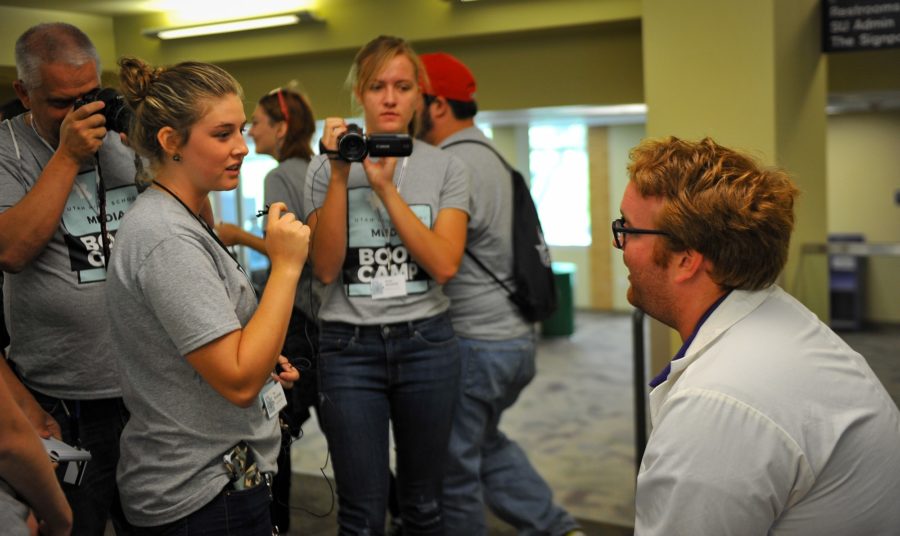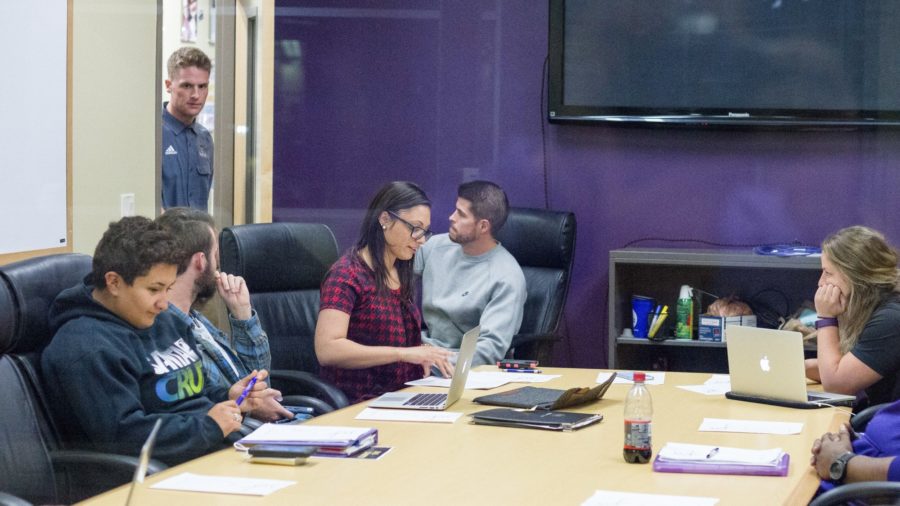While navigating the vast world of online chat forums, social networks and other modes of communication that aren’t face-to-face or even voice-to-voice (yes, texting counts), we often find friends and strangers typing words to each other that they would never say to their faces.
Anyone taking a look at popular anonymous forums such as the Weber State Confessions Facebook page, which we wrote a story about a few issues ago, will see comments ranging from mildly snarky to full-on cyberbullying. This is what needs to stop — comments and messages that cause more harm than good.
We aren’t saying to kill them with kindness. Although that is sound advice, we’re saying that you shouldn’t post it if you wouldn’t say it. And think twice before you post or say anything, because cyberbullying actually kills people.
According to Stopbullying.org, cyberbullying is “bullying that takes place using electronic technology.” As college students, we are old enough to know better than to treat people this way, whether online or off.
LGBT students run a higher risk of being cyberbullied. Even students who are just perceived to be gay have been targeted. In some cases, bullies and cyberbullies will “out” an individual, which may cause family rejection, increased feelings of depression, anxiety and suicide. According to Ogden OUTreach, 8 of 10 LGBT youth have reported being bullied.
We are now in college, and for some of us, the days of high school are long gone, but that doesn’t mean cyberbullies don’t still have an effect on us. Children and teens who are cyberbullied are more likely to experience in-person bullying, have lower self-esteem, skip school, have more health problems and even commit suicide. The same is true for college-age students. According to PBS.org, 4 in 10 teens have experienced online bullying, and girls are twice as likely to be the victims and perpetrators.
Recently, on the Weber State Confessions page, someone on our staff called out a cyberbully and was harassed by the bully and other users of the public forum. The cyberbully gave the full name, place of employment, and explicit and perhaps slanderous details of an individual who goes to school here at Weber State. When our staff member got in contact with the admin of the page, he or she did nothing. Facebook’s admins also did nothing, but that’s because the bully removed the hateful comments before they could be scrutinized by Facebook admins.
We at The Signpost can’t support webpages like Weber State Confessions if the admins won’t prevent cyberbullying on their website. Admins’ jobs are to monitor their webpages for bullies and prevent such comments being posted in the first place. But ignoring the problem doesn’t make it go away. PBS.org listed a few ways to deal with cyberbullies and other online meanies. We came up with our own list, and would recommend anyone who is dealing with bullies of any kind to visit Stopbullying.org/reportfbabuse. Anyone who feels suicidal, call 1-800-273-TALK (8255).
Advice for dealing with cyberbullies:
1. Stop replying back to the bully. This will only make the situation worse.
2. Don’t seek revenge and become the cyberbully, especially by inadvertently typing words you’d never say.
3. Take a screenshot and report the abuse to the administrator of the page.
4. Block the bully, and if the online abuse persists, contact a lawyer.














